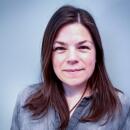Climate change fears propel scientists out of the lab and into the world
- Share via
When Steve Ghan set out to walk 1,500 miles of the Pacific Crest Trail, he brought along a bright blue hat emblazoned with four words: “Make Earth Cool Again.” It often drew compliments from other hikers, which he used as an opening.
“I’d tell them, ‘Yeah, I’m a climate scientist and I want to stop climate change,’” said Ghan, who completed the California segment of the trail in 2018. Then he’d give his five-minute pitch for why the U.S. should impose a fee on carbon emissions and distribute the revenue to ordinary citizens.
It’s not the kind of thing you expect to hear from someone like Ghan. He spent 28 years at the Pacific Northwest National Laboratory in Richland, Wash., building the complex climate models that — together with many other lines of evidence — helped confirm humanity’s role in warming the planet. Advocacy was not part of his portfolio.
“We naively thought, ‘Well, OK, we’ve done our job, now the politicians are going to make decisions,’” he said. “But that’s not the way it worked.”
So Ghan bucked tradition and began speaking publicly about the risks of climate change. And these days, more and more scientists are making the same choice.
They are rejecting the idea that researchers should stick to the data and let others figure out what to do with it. Driven by the lack of climate action, they are marching in the streets, signing on to manifestos and even getting arrested — all in the name of avoiding the worst effects of global warming.
“I feel the moral imperative to speak out,” said Andrea Dutton, a paleoclimatologist based at the University of Wisconsin in Madison who studies past changes in sea level to understand what’s in store as ice sheets melt.
Scientists’ aversion to activism dates all the way back to the philosopher David Hume, who in 1739 argued that one could not get an ought from an is. In other words, facts alone can never tell us what we should do.
That belief became a fundamental tenet of science, informing bedrock principles like the importance of objectivity. Advocacy, many researchers believed, undermined their ability to do impartial and unbiased work.
However, after uncovering troubling truths, some researchers found it impossible to stay silent.
In the 1970s, the late UC Irvine chemist F. Sherwood Rowland helped figure out that compounds in aerosol sprays were destroying the ozone layer — work that led to a Nobel Prize. Not content just to publish in scientific journals, he called for phasing out the harmful chemicals, known as chlorofluorocarbons, or CFCs.
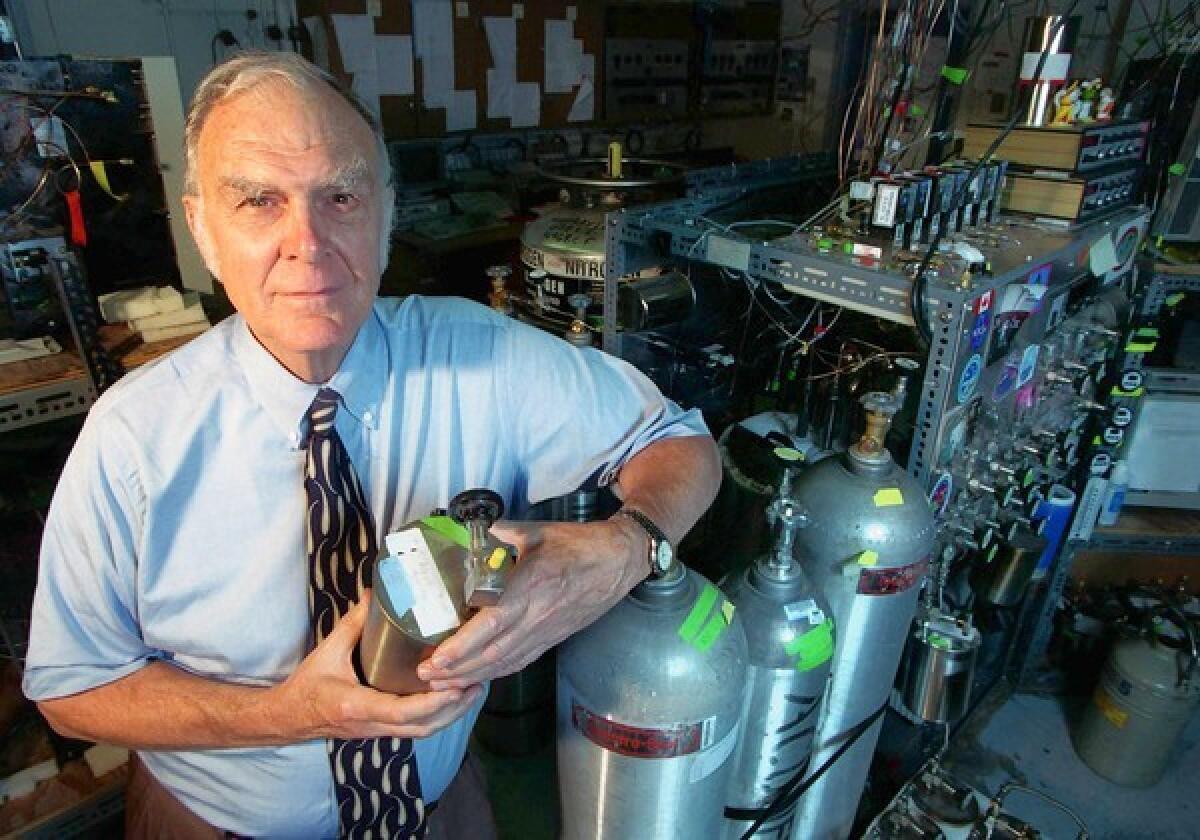
His actions drew criticism from his colleagues, but he stood his ground.
“What’s the use of having developed a science well enough to make predictions, if in the end all we’re willing to do is stand around and wait for them to come true?” Rowland famously told the New Yorker in a 1986 interview. (The following year, countries signed an international agreement banning CFCs that allowed the ozone hole to recover.)
Many climate scientists now feel the same sense of urgency as they watch their own predictions come to life in the form of extreme fires, storms and heat waves.
Researchers have understood for more than 40 years that human activities such as burning fossil fuels were heating the planet. But only a handful spoke out about the consequences.
“There was really a hurdle I had to overcome,” Ghan said. The feeling among researchers was that “if you start advocating policy that you would compromise your science.”
Ultimately, his worries about climate change outweighed his fears of professional fallout. He was also tired of accusations — mainly from political conservatives — that climate scientists were perpetrating a hoax to make money, or that they were all liberals toeing the Democratic Party line.
“Part of it is the offense of having our integrity challenged,” said Ghan, who boasts that he voted for both Bushes for president. In fact, one reason he’s embraced the carbon fee and dividend plan is that he thinks it holds appeal across the political spectrum. (He used his trek to raise money for the Citizens’ Climate Lobby, which promotes the policy.)
Dutton hedged for a while too. “I felt like there was this line that I shouldn’t cross,” she said.
But her hesitation ended after she was asked to speak at her local March for Science in 2017. “I’m a human too who is going to be impacted by climate change,” she said.
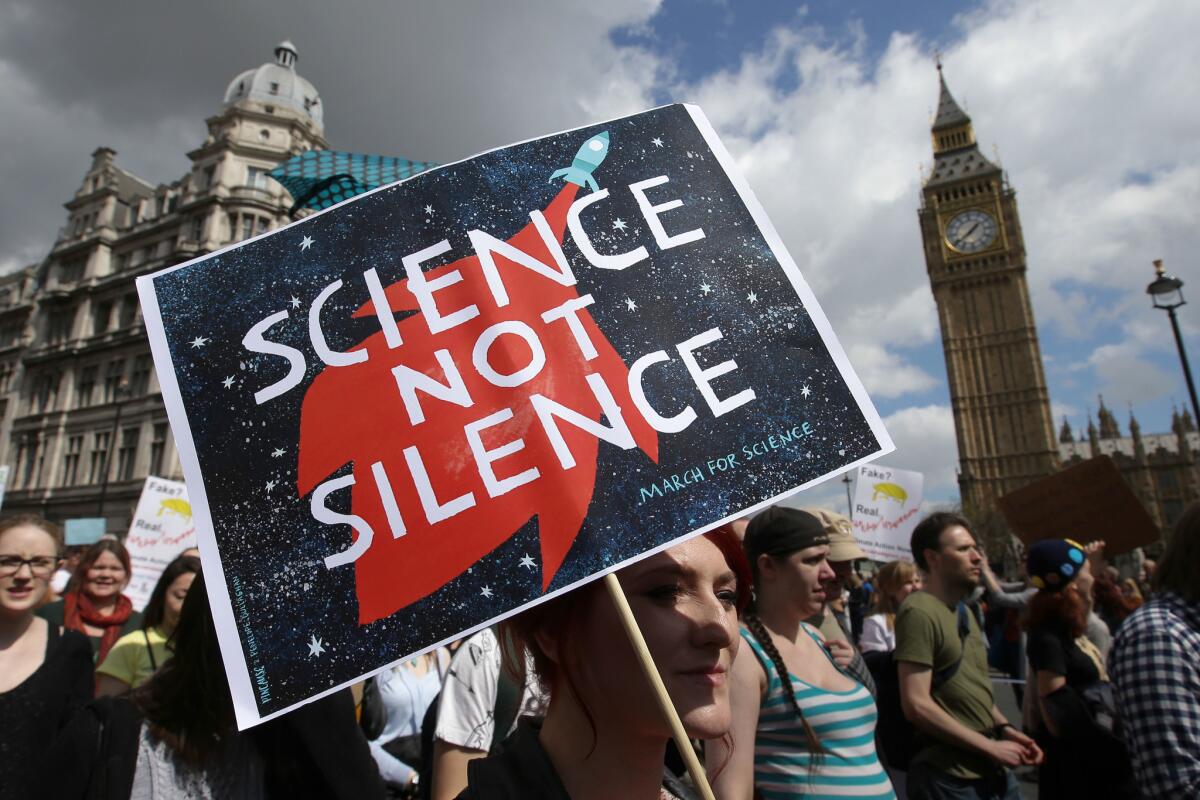
And despite her concerns, she said she hasn’t received any pushback from her peers. “Usually, the opposite,” she said. (Scientists who enter the fray do, however, experience abuse from climate deniers, especially if they are women.)
The election of Donald Trump was a turning point for Adam Sobel, an atmospheric scientist at Columbia University. For a long time he had been content to “hide in my hole and do my stuff,” he said. But he couldn’t stay quiet when the president seemed to have so little regard for facts — the foundation of science.
“Our whole job is about what’s true and what’s not true,” he said.
Now Sobel joins marches, like the Global Climate Strike in September, and signs petitions calling for faster climate action. He said he feels the weight of history.
“If I look back on this in 50 years, what would I want to see myself doing?” he said. “If you look at it that way, it’s hard for me to see how a scientist can justify complete silence and inaction.”
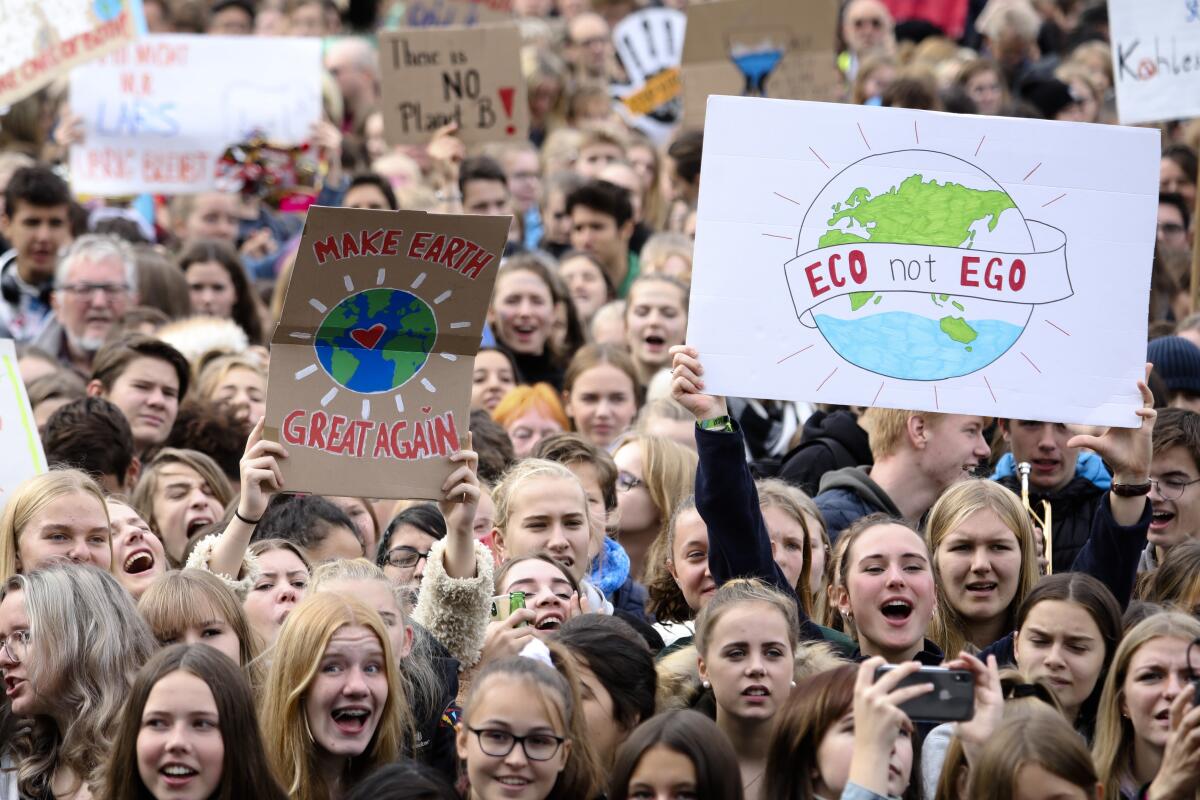
Indeed, some researchers now embrace the idea that their expertise demands they join the public conversation.
“If we aren’t the ones to speak up about it, then who will?” said Helen Amanda Fricker, a glaciologist at the Scripps Institution of Oceanography in San Diego.
Fricker was one of about 1,500 scientists who recently declared their support for Extinction Rebellion, an environmental group whose elaborate, theatrical climate protests have disrupted life in London and other cities. (She has also been advising the organization in hopes of tempering some of its rhetoric and improving its scientific accuracy.)
The petition is one of several forceful statements to come from scientists in the last year.
In April, a group of 22 leading researchers penned a letter in the journal Science siding with the youth activists who have catalyzed a worldwide climate movement.
“Their concerns are justified and supported by the best available science,” the authors wrote. “The current measures for protecting the climate and biosphere are deeply inadequate.”
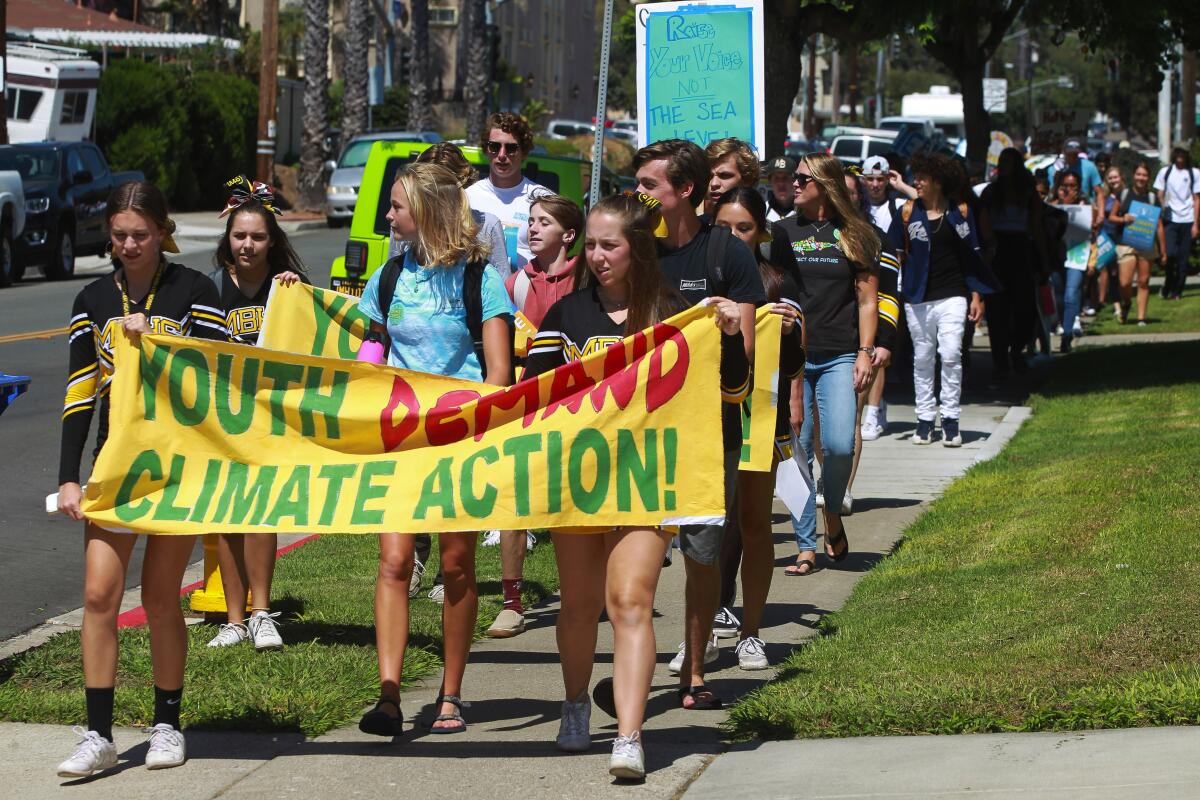
And last month, 11,000 scientists warned in the journal BioScience that the world faces a looming climate emergency and must act swiftly “to avoid untold suffering due to the climate crisis.” They proposed several solutions, including a speedier transition to clean energy, eating less meat and promoting family planning to keep population growth in check.
Bill Ripple, the Oregon State University ecologist who led the effort, said he was moved to act after the Camp fire devastated Paradise, Calif.
“I felt my eyes getting wet when I realized how some people were cremated inside their cars while trying to escape,” he said. “I strongly believe that we cannot continue with business as usual.”
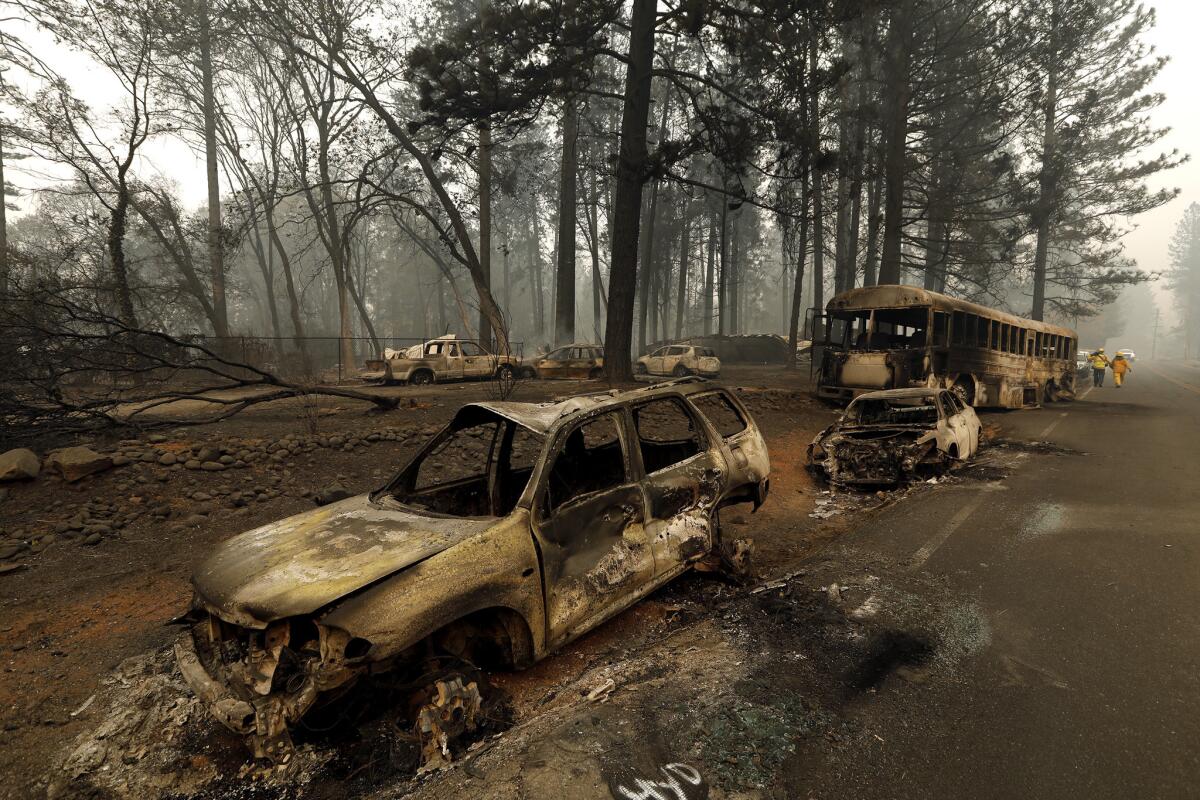
It’s hard to know just how many scientists have turned to activism in the last few years. But many researchers say they’ve noticed a change, and John Kotcher, who studies climate communication and public opinion at George Mason University, has some preliminary data to back that up.
In 2017, he and his colleagues surveyed roughly 5,000 scientists. They found that nearly 80% of respondents had participated in the inaugural March for Science — and that almost 90% said it was their first science-related demonstration.
Not everyone is comfortable with the trend, however. Ken Caldeira, a climate scientist at the Carnegie Institution for Science, declined to sign the BioScience letter because of what he considered “over-the-top language” on impacts and overly specific recommendations on solutions.
“My job is establishing facts and providing people with information,” he said. “Moral or ethical or policy judgments are by their very nature not part of the scientific enterprise as I see it.”
As private citizens, climate scientists have a right to an opinion, he said. But as professionals, they should avoid advocating for particular solutions, which often have complex social and economic dimensions that lie outside their expertise. Pushing certain policies could also make researchers seem like a political interest group, he warned.
“If climate scientists are not seen as dedicated to providing reliable information in as neutral a way as possible, that could erode support,” Caldeira said.
Indeed, a 2018 survey found that the March for Science had a polarizing effect on people’s opinions of scientists, increasing positive attitudes among liberals and negative attitudes among conservatives.
However, other evidence suggests that speaking up doesn’t damage scientists’ credibility. A 2017 study found that simply advocating for climate action did not harm their standing with Americans. In fact, trust in them rose when they were seen as serving the public interest, said Kotcher, who led the study.
“If there’s an asteroid hurtling toward the Earth, you want the relevant experts to let us know,” he said.
That way of thinking suits the new generation of climate scientists, many of whom were drawn to the field because they want to help solve the problem.
Mara Freilich, a graduate student at MIT and the Woods Hole Oceanographic Institution, prides herself on doing rigorous research about how carbon and other nutrients cycle through the oceans. But she is also a member of several organizations that work at the intersection of science and social justice — for instance, by advocating for cleaner and more democratically managed power grids.
And she has no intention of sitting on the sidelines while the planet careens toward a dangerous future.
“Science is political and it always has been,” she said.



